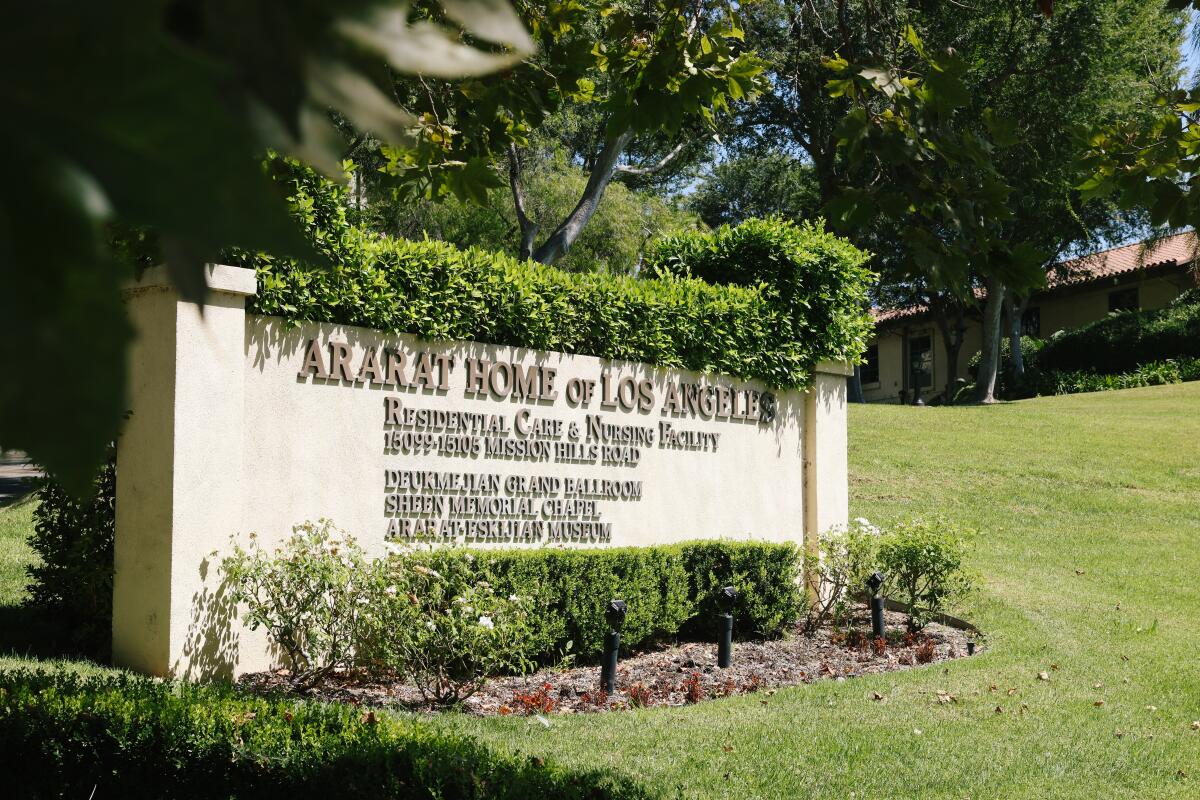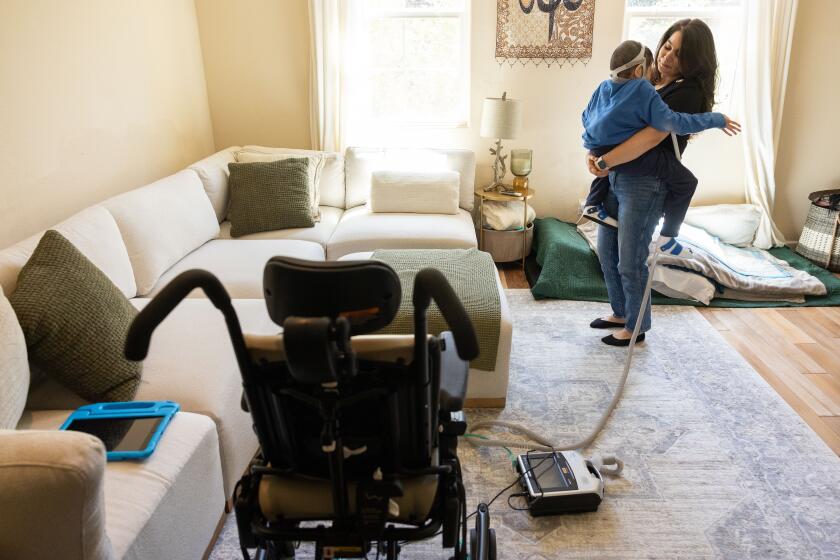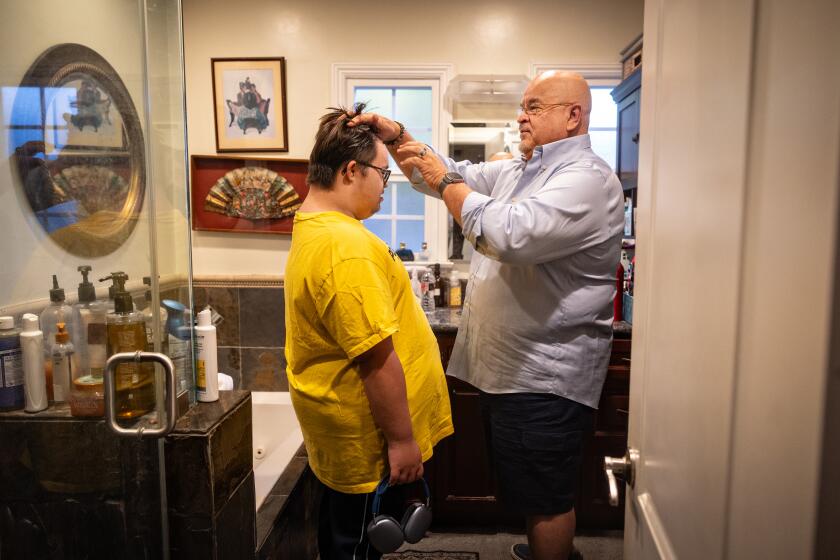Mission Hills nursing home faulted over two deaths in less than three months

- Share via
California regulators faulted a Mission Hills nursing home for violations that played a part in the deaths of two residents in less than three months, potentially putting its license at risk.
The California Department of Public Health investigated two deaths of Ararat Nursing Facility residents, one of whom died in March, the other in June. In both cases, their investigations found violations at the Mission Hills home that were “a substantial factor” in those deaths, according to state findings.
In June, an elderly woman died after falling from a lifting device where she had been left unattended, state investigators found. A nursing assistant had brought in the lift to weigh the woman, put a fabric sling underneath her, then left the room to get another staffer, according to the state findings. The woman suffered broken bones in her face and ultimately died at the hospital. Ararat was cited and faces a $120,000 fine over the June incident.
Another elderly woman living at Ararat had been hospitalized and ultimately died in March after she stopped breathing during a meal, according to the public health department. She was known to be at risk for choking or inhaling food, but state investigators found that a family member had been helping her eat mashed potatoes without a staffer monitoring them.
Ararat employees told state investigators that her family members had been taught about mealtime precautions to prevent the woman from inhaling food, but could not provide written evidence of that training. State investigators cited Ararat for failing to provide “safe eating practices” and levied a $120,000 fine.
Ararat Nursing Facility said in a statement that it was “committed to providing the highest level of safe and compassionate care for all of our residents” and had been repeatedly recognized for its quality throughout its history.
“We are currently in the process of appealing the citations in Superior Court and cannot comment further on the citations at this time,” the facility said.
Thousands of Californians have been trying to get Medicaid benefits for services to help medically vulnerable people remain at home, but the waitlist is thousands of people long, and the state is opening only 200 new slots a month.
The two citations issued to Ararat were categorized as “AA” — ones in which violations were found to be a substantial factor in the death of a resident. Fewer than 200 have been levied on California skilled nursing facilities since 2010, making up roughly 2% of state enforcement actions involving nursing homes, state data show. Seventeen have been issued so far this year to nursing homes across the state.
Under California law, if a nursing home gets two such citations within two years, the state “shall commence action to suspend or revoke” its license.
However, the California Department of Public Health said it has the authority to resolve such cases with other actions, “such as an appeal or settlement, that may not include immediate licensure suspension or revocation actions.” For instance, an appeal by a nursing facility could result in downgrading the level of a citation.
“Virtually all of the AA citations are appealed,” said Tony Chicotel, a senior staff attorney with California Advocates for Nursing Home Reform. Its review of scores of citation appeals found that nearly half of AA citations that were appealed were reduced.
Chicotel was concerned that by granting such reductions, the state has been “encouraging continued noncompliance with the rules.” Because it can take a long time for the state to defend such a citation, “it’s just so much easier to downgrade it and come up with a settlement and save themselves lots of time and energy.”
The public health department said there was “no set resolution date” for the appeals, which Ararat had notified the department they would be lodging. Ararat has not yet paid the fines, according to the state: CDPH said such payments are required within 30 days of a final decision, once the appeal process has been concluded.
Nearly $1 billion allocated for services for Californians with disabilities was ultimately returned to the state, even as some disabled people said they needed more help.
More to Read
Sign up for Essential California
The most important California stories and recommendations in your inbox every morning.
You may occasionally receive promotional content from the Los Angeles Times.













